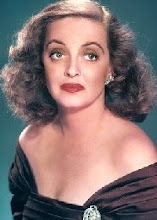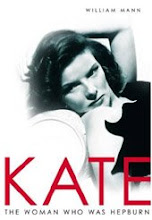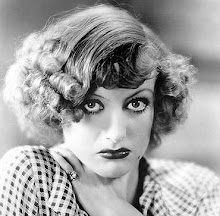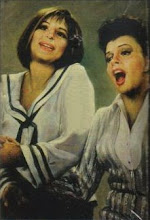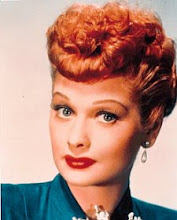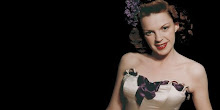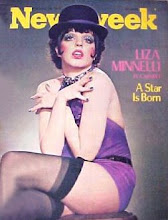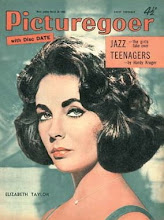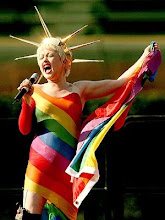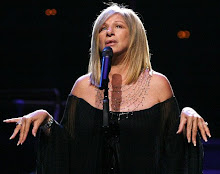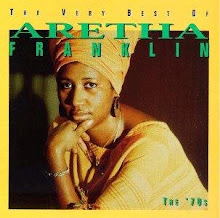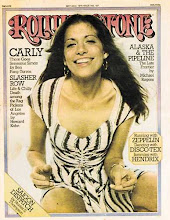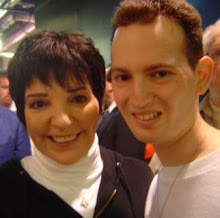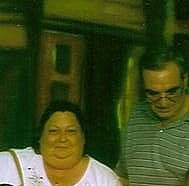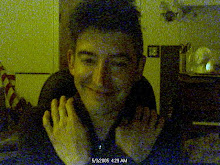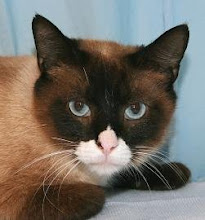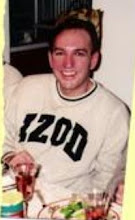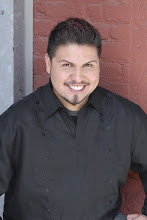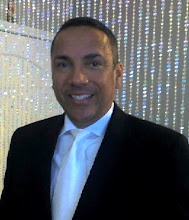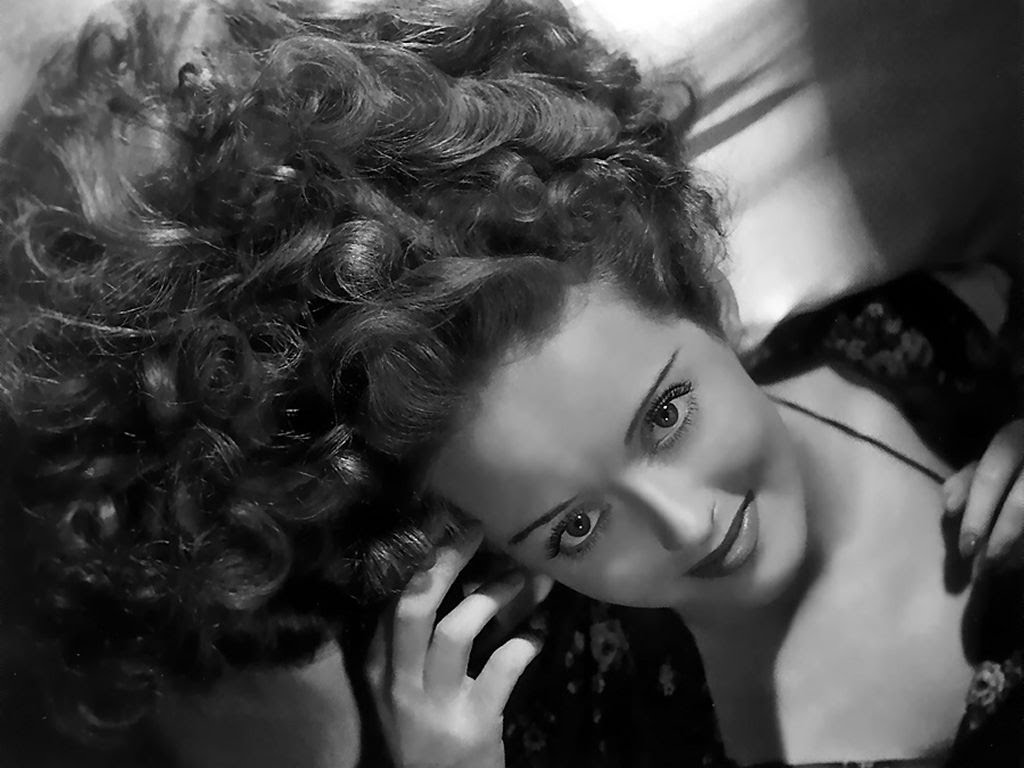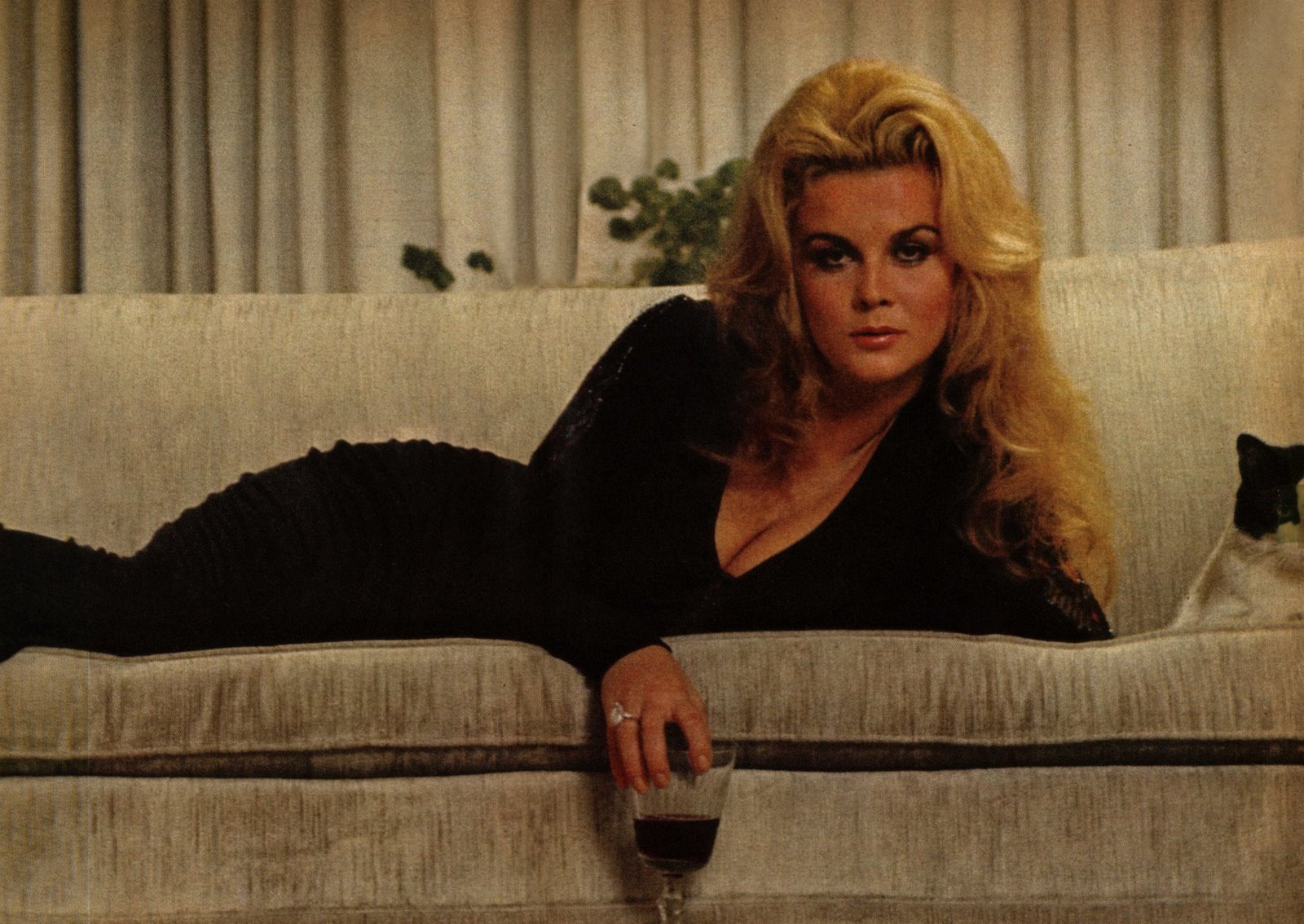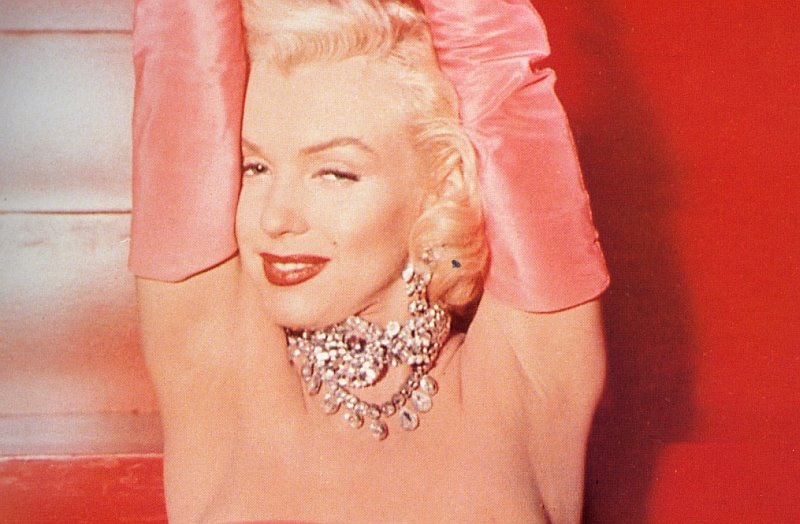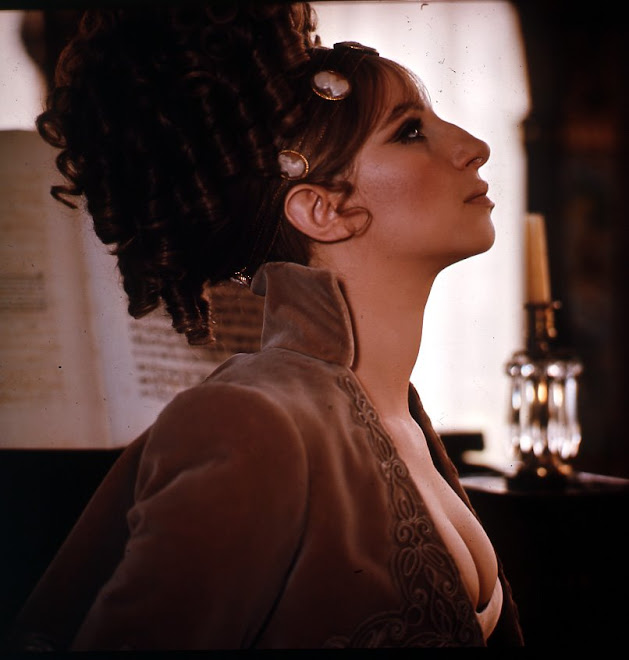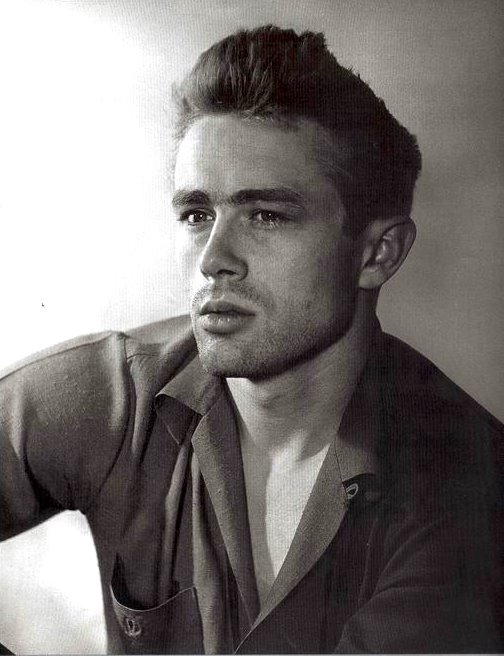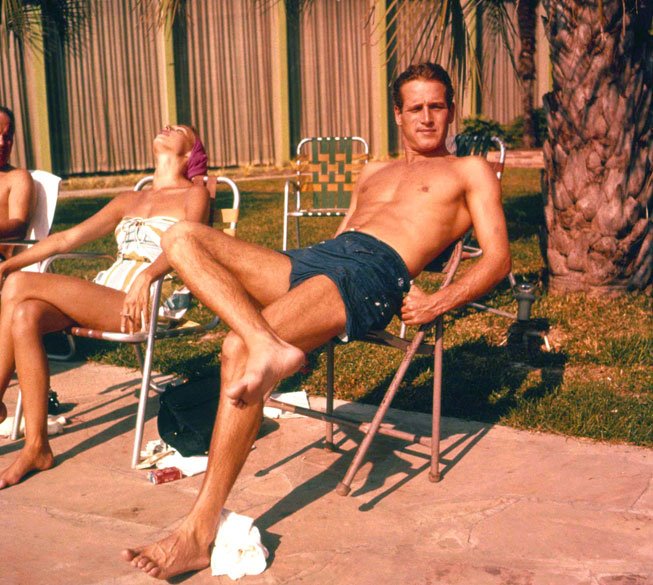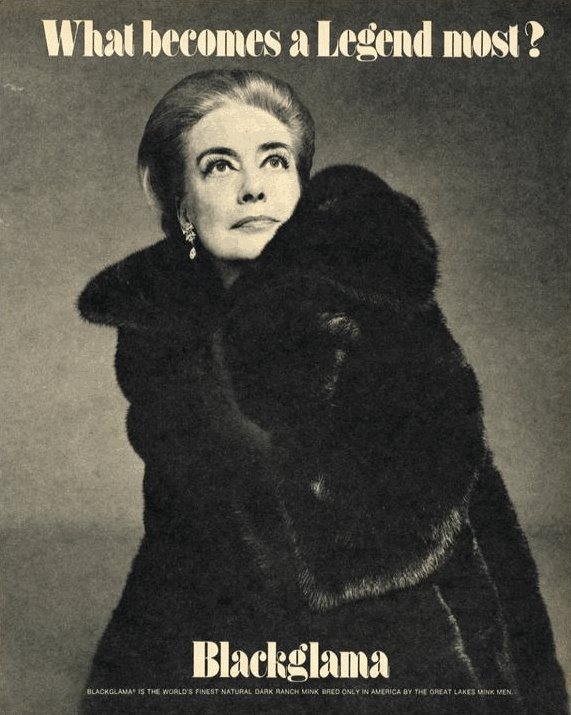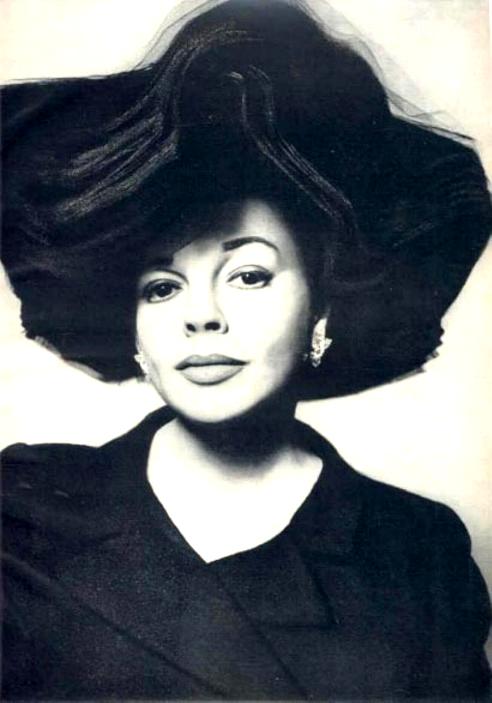
Attended Vassar College, Poughkeepsie, NY.
Is the subject of an erroneous urban legend. When Vassar was a women's college, the story goes, Jane Fonda refused to wear the elegant white gloves and pearls that were the attire for the daily Tea in the Rose Parlor. When confronted, Fonda returned to the parlor wearing the gloves and the pearls, and nothing else.
Arrested and charged with drug smuggling (November 1970).
Her birth was the cause of some interruptions during her father's filming of
Jezebel (1938) with
Bette Davis.
She was, and still is, an exercise maven.
Mother of
Troy GarityFonda was arrested in 1970 after allegedly kicking a cop when she was found carrying a large amount of what appeared to be pills. All charges were dropped after the pills were identified as vitamins.
Her father was of Italian and Dutch descent and her mother was of Irish and German descent.
Is fluent in French.
Passed on the title role in
Norma Rae (1979), which won a Best Actress Oscar for its eventual star
Sally Field.
She and her father
Henry Fonda are the only father-daughter couple to receive Oscars for
leading roles.
A 1972 visit to Hanoi during the Vietnam war where Fonda campaigned in favor of the communist regime and the subsequent release of several photographs of her atop a North Vietnamese anti-aircraft gun used against American air crews earned her the nickname "Hanoi Jane." As a result of her visit to Hanoi and the accompanying photographs, many Americans continue to regard Fonda with general resentment and hostility to this day.
Was offered the role of Chris MacNeil in
The Exorcist (1973).
Jane now openly admits that she suffered from bulimia from age 13 to age 37. While modeling, she said she lived on cigarettes, coffee, speed, and strawberry yogurt.
Shortly after her divorce from
Ted Turner, she announced she had become a born-again Christian. Speculations are that this may have played a part in their seperation, since Ted Turner has expressed highly critical opinions on religion in general.
The suicide of her socialite mother Frances Seymour Brokaw was kept from her as a teenager, and she was told that she'd died of heart failure. Household newspaper and magazine subscriptions were canceled, and the staff and student body of Fonda's high school were instructed not to discuss the incident. Fonda learned the truth months later while leafing through a movie magazine in art class.
Protested alongside fellow actresses
Sally Field &
Christine Lahti, and playwright
Eve Ensler urging the Mexican government to re-investigate the slayings of hundreds of women in Ciudad Juarez, on the Mexico-Texas border. (February 2004)
Was nominated for Broadway's 1960 Tony Award as Best Supporting or Featured Actress (Dramatic) for "There Was a Little Girl."
Turned down the role of Bonnie Parker, then played by
Faye Dunaway, in
Bonnie and Clyde (1967) Living in France at the time, she did not want to relocate to the U.S. for the part.
In 1984, her wealth, generated from acting, producing, and fitness videos was estimated at $50 million.
Announced that she became a Christian (2001).
Her aerobics video "Jane Fonda's Workout" sold 17 million copies, making it the best-selling home video ever and her an icon of this form of exercises (1982).
Danced ballet until she broke her foot in her 40s.
Personal Quotes
Working in Hollywood does give one a certain expertise in the field of prostitution.
I was terrified when I turned 30. I was pregnant and had the mumps and
Faye Dunaway was just coming out in
Bonnie and Clyde (1967). I thought, 'Oh my God, I'll never work again. I'm old!'
"Acting with [Laurence] Harvey is like acting by yourself - only worse." - Jane Fonda on her 1962 film Walk on the Wild Side
"It hurt so many soldiers. It galvanised such hostility. It was the most horrible thing I could possibly have done. It was just thoughtless." [expressing regret at her support for the Viet Cong]
I, a Socialist, think we should strive toward a Socialist society, all the way to Communism.
"If you understood what Communism was, you would hope, you would pray on your knees that one day we would become Communist." (speaking to students at the University of Michigan in 1970)
People think actresses find public speaking easy, and it's not easy at all; we're used to hiding behind masks.
[accepting her father's Oscar for On Golden Pond]: "I'll bet when he heard it just now he said 'Hey ain't I lucky?' As if luck had anything to do with it."
The image of Jane Fonda, Barbarella, Henry Fonda's daughter ... sitting on an enemy aircraft gun (in North Vietnam) was a betrayal...The largest lapse of judgment that I can even imagine.
I would have given up acting in a minute. I didn't like how it set me apart from other people.
When I start down a path that I know is the right path, I go with all of me.
I'm a very brave person. I can go to North Vietnam, I can challenge my government, but I can't challenge the man I'm with if means I'm going to end up alone.
It's hard to imagine a happy ending to the US-led war in Iraq. What's it going to mean for stability as a nation, for terrorism, for the economy I can't imagine. I think the entire world is going to be united against us.
Ted [Turner] needs someone to be there 100 percent of the time. He thinks that's love. It's not love. It's babysitting.
I wanted to do a tour like I did during the Vietnam War, a tour of the country. But then
Cindy Sheehan filled in the gap, and she is better at this than I am. I carry too much baggage.
When I left the West Coast I was a liberal. When I landed in New York I was a revolutionary.

























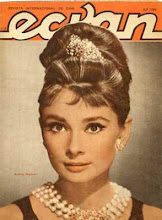











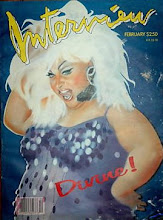

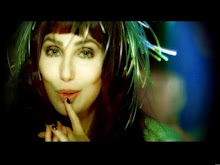
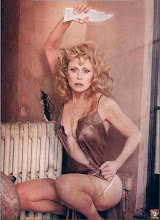
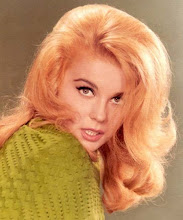

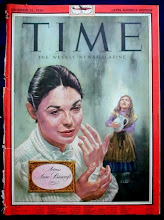


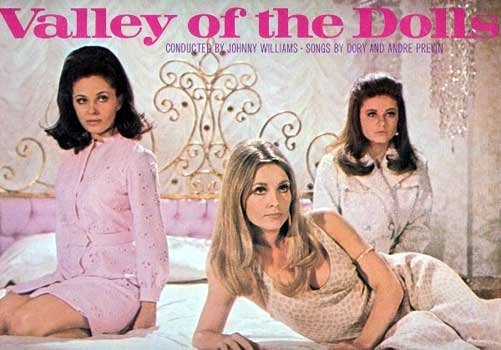
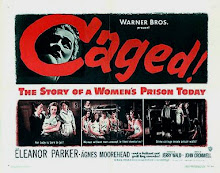

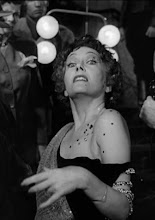


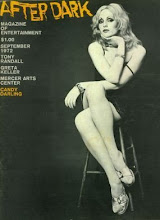
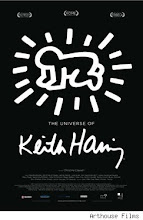
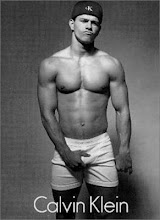




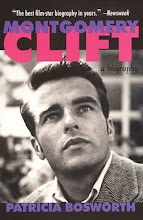
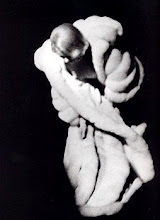
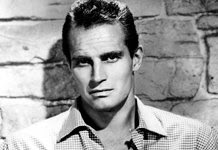

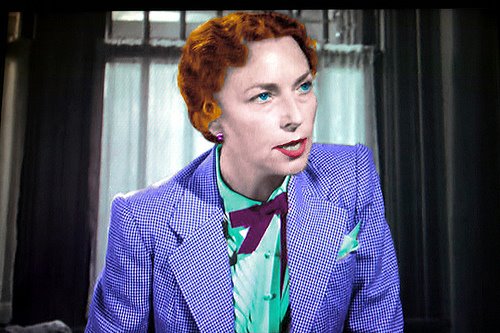

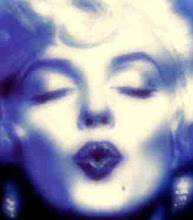
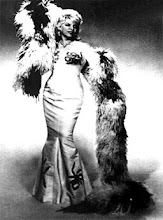
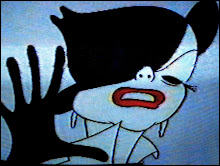.jpg)
